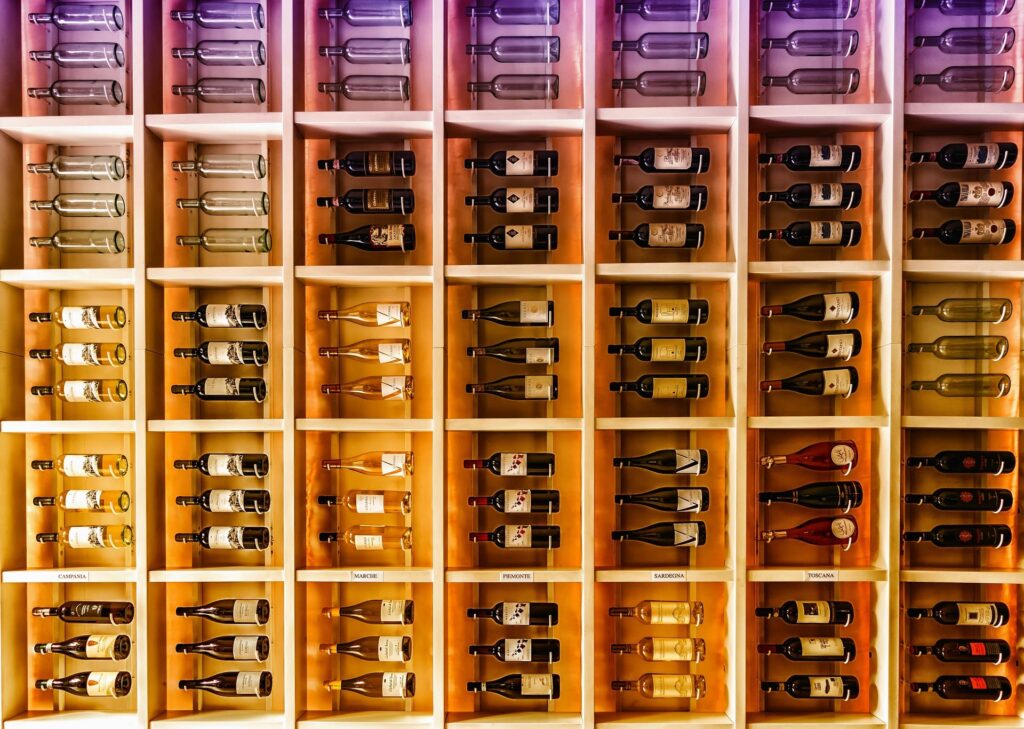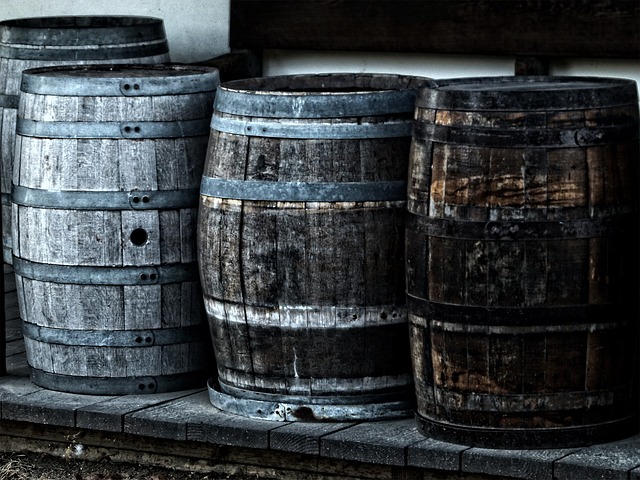Wine Storage – What is the Best Place to Store the Wine?
Welcome to our article on wine storage! If you’re a wine enthusiast or occasionally enjoy a good glass of wine, you may have wondered about the best way to store your precious bottles.
In this article, we’ll explore the ideal conditions for wine storage and the various options available to keep your wine safe and well-preserved.
Why Proper Wine Storage Matters
Before we dive into the best places to store wine, it’s essential to understand why proper storage is crucial. Wine is a delicate beverage that can be easily affected by its surroundings. Factors such as temperature, humidity, light, and vibration can all impact the wine’s taste, aroma, and overall quality.
Therefore, creating an environment that promotes optimal aging and preserves the wine’s characteristics is essential.
1. Wine Cellar
A wine cellar is often considered the gold standard for wine storage. These dedicated spaces provide the perfect conditions for aging wine. Ideally, a wine cellar should be relaxed, dark, and humid. A constant temperature between 50-59°F (10-15°C) is recommended, as fluctuations in temperature can cause wine to deteriorate.
Additionally, a humidity level of around 60-70% helps prevent the corks from drying and ensures the wine ages gracefully.
2. Wine Refrigerator
A wine refrigerator is an excellent alternative if you don’t have the luxury of a wine cellar. These appliances are designed to store wine at the ideal temperature and humidity levels. They come in various sizes and can accommodate different bottle capacities, making them suitable for casual wine enthusiasts and serious collectors.
Wine refrigerators are also an excellent option for those living in apartments or limited spaces.
3. Dark and Cool Closet
A dark and cool closet can suffice if you’re on a tight budget or lack space for a dedicated wine storage solution. Find a closet away from direct sunlight and ensure it maintains a relatively stable temperature. Avoid areas near appliances that generate heat, such as the kitchen or laundry room.
While a closet may not provide optimal humidity control, you can place a small humidifier or a bowl of water to help maintain a slightly higher humidity level.
4. Off-Site Wine Storage
Off-site wine storage facilities offer a secure and controlled environment for serious wine collectors or those with valuable wine collections. These facilities have climate-controlled rooms, ensuring your wine is stored at the perfect temperature and humidity.
Additionally, they often provide insurance and professional inventory management services, giving you peace of mind that your wine is in safe hands.
What ideal humidity levels are required for proper wine storage, and why?
The ideal humidity levels required for proper wine storage range from 50% to 70%. This range is significant because it helps to maintain the integrity and quality of the wine.
Humidity levels that are too low can cause the cork to dry out, leading to air leakage and oxidation of the wine. This can result in a loss of flavor and aroma, ultimately ruining the wine. Moreover, low humidity can also cause the wine label to peel off or become damaged.
On the other hand, excessively high humidity can promote the growth of mold and mildew, which can contaminate the wine and its packaging. High humidity can also cause the labels to become damp and illegible.
Therefore, maintaining humidity levels within the ideal range is crucial for wine storage, as it helps to preserve the wine’s taste, aroma, and overall quality.
How does the choice of storage material, such as wooden racks or metal shelves, influence the wine’s aging process and overall quality
The choice of storage material can influence the wine’s aging process and overall quality. Here are some ways in which different storage materials can impact wine:
1. Temperature control: Both wooden racks and metal shelves can provide adequate temperature control, but wood has better insulation properties. This can help stabilize the temperature fluctuations, which is crucial for proper wine aging. On the other hand, metal shelves may be more prone to temperature variations, especially if they are not insulated.
2. Humidity regulation: Wood has a natural ability to absorb and release moisture, which helps maintain optimal humidity levels in the storage area. This is important because low humidity can cause corks to dry out and allow oxygen to enter the bottle, while high humidity can lead to mold growth. Metal shelves generally do not have this moisture-regulating capability, so additional measures may be needed to maintain proper humidity levels.
3. Air circulation: Good air circulation prevents musty odors and mold formation. Wood has a porous nature and allows for better air circulation than metal shelves, which can be more airtight. However, proper ventilation can be achieved with metal shelves by ensuring adequate spacing between the bottles.
4. Impact on taste: Wood is a porous material that can gradually transfer some of its flavors and aromas to the wine stored in contact with it. This can impart desirable characteristics, especially when using specific types of wood like oak in barrels. Metal shelves, being non-porous, do not have this effect on the wine. The choice between wood and metal can depend on personal preference and the desired flavor profile of the wine.
5. Light exposure: Both wood and metal can offer protection against direct light exposure, which can harm wine. However, wood generally provides better light insulation due to its thickness and opacity.
Ultimately, the choice of storage material depends on various factors, including personal preference, the type of wine being stored, and the desired aging conditions. Many wine enthusiasts and professionals prefer using wooden racks or barrels as they believe they can contribute positively to the aging process and the quality of the wine.
What is the Best Place to Store Wine? – Conclusion
Regarding wine storage, the key is to create a consistent environment that protects your wine from temperature fluctuations, light exposure, and excessive humidity or dryness. Whether you have a small collection or a vast cellar, various options are available to suit your needs and budget.
Remember, investing in proper wine storage is an investment in preserving the quality and enjoyment of your favorite bottles for years to come.




